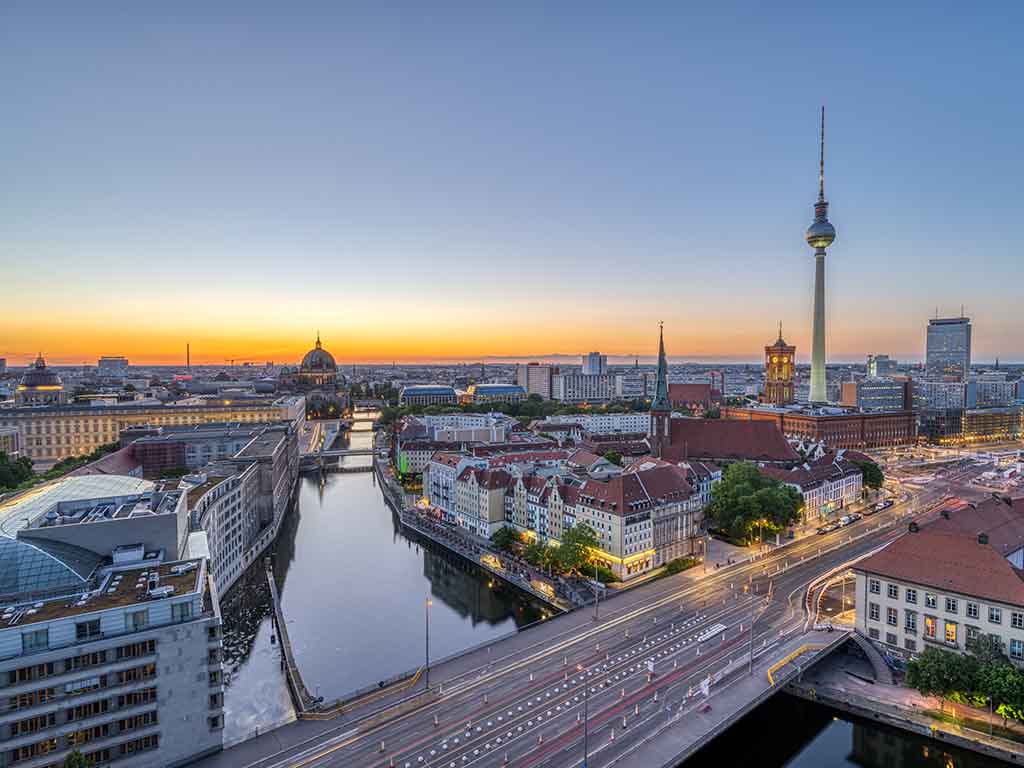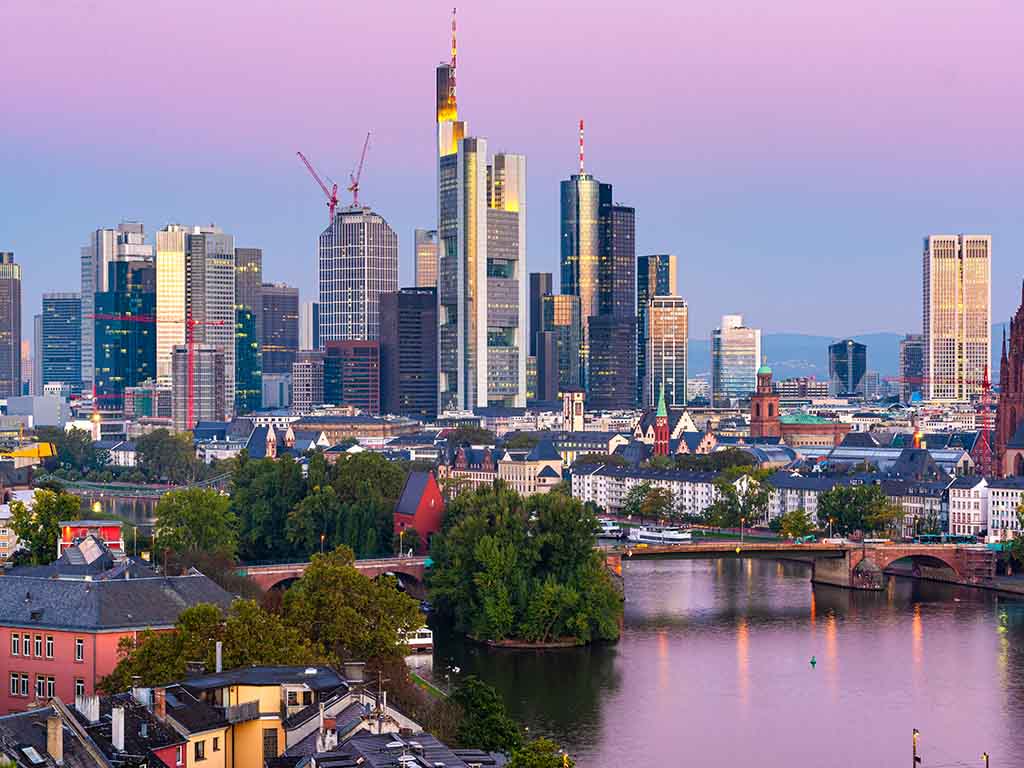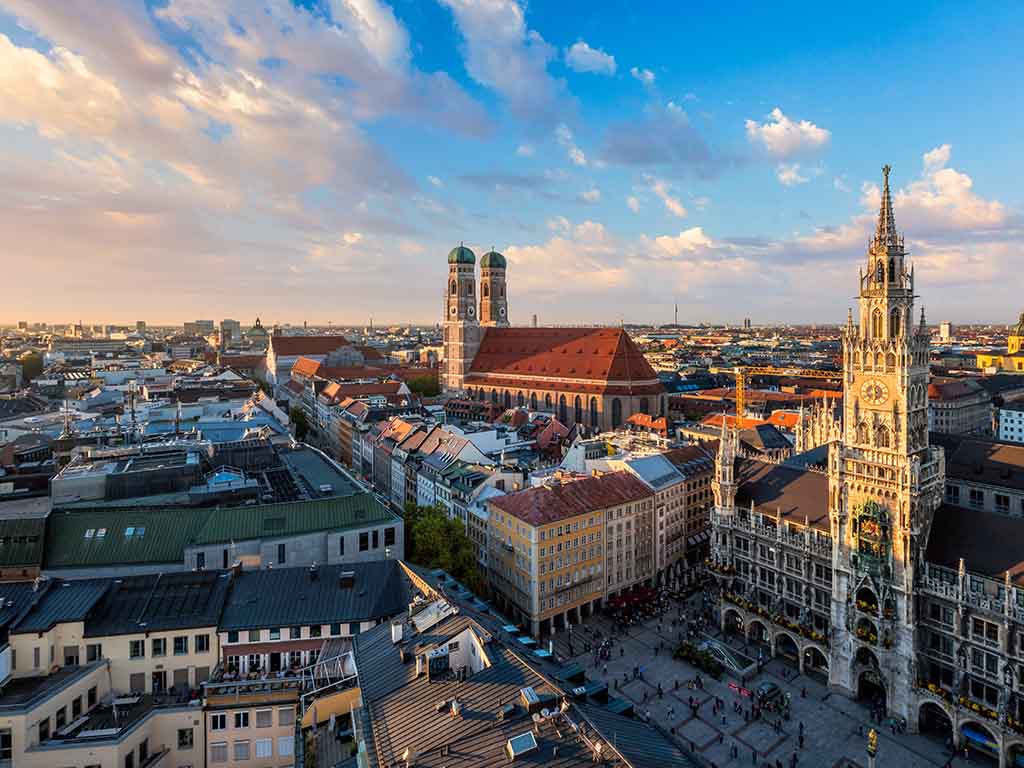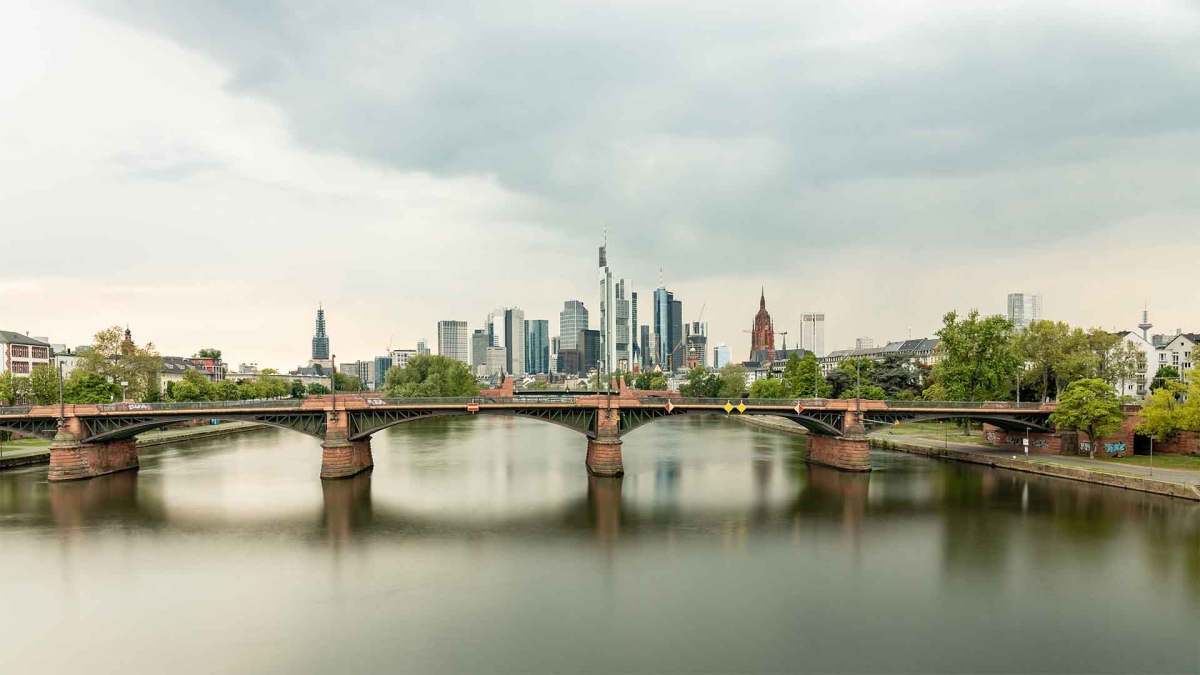Most International Cities in Germany: A Guide for Foreigners
- Most International Cities in Germany: A Guide for Foreigners
- Berlin: The Cosmopolitan Capital
- Frankfurt: The Financial Powerhouse
- Munich: The Cultural Heart of Bavaria
- FAQ: International Cities in Germany
- Which German city is the most international?
- Which city in Germany is best for foreigners?
- Which is the most multicultural city in Germany?
- Which German city has the most foreigners?
- What is the most Americanized city in Germany?
- What is the most English city in Germany?
- Which German city is cheapest to live?
- Which is the safest city in Germany?
- Which city has the best salary in Germany?
- Which city in Germany has the most Asians?
- Where do most immigrants settle in Germany?
- Which German city has the most refugees?
- Which European city is the most international?
- Which city has the most foreigners?
- What is the number 1 city in Germany?
International Cities in Germany are known for their economic strength, cultural richness, and high quality of life, making them attractive destinations for people from all corners of the globe. Among its many cities, a few stand out as particularly welcoming to international residents and visitors, offering unique blends of opportunities, cultural experiences, and modern amenities. In this article, we will compare three of the most international cities in Germany: Berlin, Frankfurt, and Munich.
These cities were chosen for their distinct roles within Germany and their appeal to a global audience. Berlin, the capital, is a dynamic hub of creativity and history, known for its diverse population and thriving startup scene. Frankfurt, as Germany’s financial powerhouse, attracts professionals from around the world with its robust economy and cosmopolitan lifestyle. Munich, the cultural heart of Bavaria, offers a combination of traditional German charm and modernity, making it a top destination for expatriates and tourists alike.
Each of these cities not only represents a different facet of German life but also serves as a microcosm of the country’s broader international appeal. Whether you’re seeking career opportunities, cultural experiences, or a welcoming environment for newcomers, Berlin, Frankfurt, and Munich offer something for everyone. In the sections that follow, we will explore what makes each of these cities unique, delving into aspects such as language, cost of living, job market, and more, to help you understand what life might be like in these vibrant urban centers.

Berlin: The Cosmopolitan Capital
Berlin, Germany’s capital, is often the first city that comes to mind when discussing international cities in Germany. With its eclectic mix of cultures, languages, and lifestyles, Berlin is a hub of diversity.
Why Foreigners Should Go to Berlin
- Cultural Diversity: Berlin is a melting pot of cultures, with residents from over 190 countries. The city’s cultural diversity is reflected in its numerous festivals, international restaurants, and vibrant arts scene. Events like the Carnival of Cultures celebrate this multiculturalism.
- Rich History: Berlin’s history, from the Prussian empire to the Cold War and the fall of the Berlin Wall, is visible in its many museums, monuments, and historical sites. The Berlin Wall Memorial and the Jewish Museum are must-visits for history enthusiasts.
- Innovation and Creativity: Known as the startup capital of Germany, Berlin attracts creative minds and entrepreneurs from around the world. The city’s numerous co-working spaces and innovation hubs foster a dynamic entrepreneurial environment.
- Nightlife: Berlin’s nightlife is legendary, with something for everyone. From techno clubs like Berghain to more laid-back bars and live music venues, the city never sleeps.
Language and Communication in Berlin
- English Proficiency: Berliners are generally proficient in English, especially in the city center and among younger populations, making it easier for non-German speakers to navigate the city. Many businesses, especially in the tech and tourism sectors, operate primarily in English.
- Language Learning Opportunities: Numerous language schools offer German courses, and there are many opportunities to practice languages in everyday life. The city also has a large community of expats who often organize language exchange meetups.
- Media and Entertainment: Many cinemas in Berlin show films in their original language, and there are English-language bookstores, theaters, and comedy clubs, making it easier for English speakers to feel at home.
Social Issues: Racism and Crime in Berlin
- Racism: While Berlin is generally accepting and progressive, instances of racism can still occur, as in any large city. However, the city’s strong anti-racist movements and support networks are noteworthy. The Berlin Senate actively promotes diversity and anti-discrimination initiatives.
- Crime: Berlin has a relatively low crime rate for a major city. However, as with any large metropolis, it’s important to stay aware of your surroundings, particularly in tourist-heavy areas. Neighborhoods like Neukölln and Kreuzberg, known for their diversity, have seen an increase in gentrification, which has also impacted crime patterns.
Accessibility and Transportation in Berlin
- Public Transport: Berlin has an extensive and efficient public transportation system, including U-Bahn (subway), S-Bahn (urban rail), buses, and trams, making it easy to get around. The city’s bike-friendly infrastructure also encourages cycling as a mode of transportation.
- Air Travel: Berlin Brandenburg Airport connects the city to major global destinations, making international travel convenient. The airport’s modern facilities and efficient services cater well to international travelers.
- Mobility: Berlin is highly accessible for people with disabilities, with many public transport options, buildings, and facilities being designed or adapted for ease of access.
Weather in Berlin
- Climate: Berlin experiences a temperate climate with cold winters and warm summers. Winter temperatures can drop below freezing, and snowfall is common, particularly in January and February. Summer temperatures range between 20°C to 30°C (68°F to 86°F), with July being the warmest month.
- Seasonal Activities: Berlin’s seasonal weather offers a variety of activities year-round. In the summer, outdoor festivals, parks, and lakes like Wannsee and Müggelsee become popular spots. In winter, Christmas markets, ice skating rinks, and cozy indoor events take center stage.
Cost of Living in Berlin
- Affordability: Compared to other major European capitals, Berlin is relatively affordable, though rents have been rising in recent years. The city’s lower cost of living has traditionally attracted artists, students, and young professionals, though this is changing as prices increase.
- Housing: While rental prices are increasing, it’s still possible to find reasonably priced apartments, particularly in districts outside the city center like Wedding and Lichtenberg. The city also has a strong tradition of communal living, with many people opting for shared apartments (Wohngemeinschaften or WGs).
- Daily Expenses: Groceries, dining out, and entertainment are generally more affordable in Berlin compared to cities like Munich or Frankfurt. Public transportation is also reasonably priced, with monthly passes available for frequent users.
Job Market in Berlin
- Opportunities: Berlin’s job market is diverse, with opportunities in tech startups, creative industries, and the public sector. The city’s reputation as a tech hub continues to grow, with many international companies choosing Berlin as their European base.
- Work-Life Balance: The city’s laid-back atmosphere supports a healthy work-life balance, making it an attractive destination for professionals. Berlin’s flexible work culture, combined with its numerous parks and recreational spaces, contributes to a balanced lifestyle.
- Networking and Professional Growth: Berlin is a city of networks, with countless events, meetups, and conferences for professionals in all industries. The city’s international environment also means that English is often the working language in many companies.

Frankfurt: The Financial Powerhouse
Frankfurt, known as the financial capital of Germany, is one of the most international cities in the country, offering a dynamic lifestyle and a multicultural environment.
Why Foreigners Should Go to Frankfurt
- Economic Hub: As home to the European Central Bank, Frankfurt is a key financial center, attracting professionals from around the world. The city is also a major player in the fields of commerce, transport, and logistics, hosting many multinational corporations.
- Cultural Scene: Frankfurt boasts a rich cultural scene with numerous museums, theaters, and music festivals. The Museumsufer (Museum Embankment) along the River Main is home to some of Germany’s most important cultural institutions, including the Städel Museum and the German Film Museum.
- International Community: With a large expatriate population, Frankfurt is incredibly international, offering services and amenities tailored to foreigners. The city’s international schools, English-speaking doctors, and expat clubs make it easier for newcomers to settle in.
- High Quality of Life: Frankfurt offers a high quality of life with excellent healthcare, education, and public services. The city’s compact size also means that green spaces, like the Palmengarten and Stadtwald, are never far away.
Language and Communication in Frankfurt
- English Proficiency: In Frankfurt, especially in the business district, English is widely spoken, which is beneficial for international professionals. Many multinational companies use English as their primary language of communication.
- Multilingual Environment: Many companies operate in English, and there are several international schools and language courses available. The city’s international community also means that other languages, such as French, Spanish, and Mandarin, are commonly heard.
- Cultural Integration: Frankfurt’s international environment makes it easier for newcomers to integrate. The city offers various cultural events and festivals that celebrate its diverse population, such as the Parade der Kulturen (Parade of Cultures).
Social Issues: Racism and Crime in Frankfurt
- Racism: Frankfurt, like Berlin, is generally open and welcoming, though it is not immune to racism. However, the city’s international nature helps create a more inclusive environment. Organizations like the Frankfurt International School and various expat groups provide support for international residents.
- Crime: Frankfurt’s crime rate is moderate, typical of a large city. Petty crimes like pickpocketing can occur, particularly in busy areas like the Hauptbahnhof (main train station). The city’s police force is highly visible, particularly in tourist areas, and crime levels have been on the decline in recent years.
Accessibility and Transportation in Frankfurt
- Public Transport: The city has an excellent public transport network, including U-Bahn, S-Bahn, trams, and buses. The Frankfurt Hauptbahnhof is one of the busiest train stations in Europe, providing connections to cities across Germany and beyond.
- Air Travel: Frankfurt Airport is one of the busiest in the world, offering flights to virtually any major city globally. The airport’s strategic location makes Frankfurt a major hub for international travel.
- Mobility: Frankfurt is a compact city, making it easy to navigate on foot or by bicycle. The city is also making strides in becoming more accessible for people with disabilities, with ongoing improvements to public transport and infrastructure.
Weather in Frankfurt
- Climate: Frankfurt has a temperate climate with mild winters and warm summers. Winter temperatures average around 0°C to 5°C (32°F to 41°F), while summer temperatures can reach up to 30°C (86°F). The city experiences moderate rainfall throughout the year, with May to September being the wettest months.
- Seasonal Activities: Frankfurt’s seasonal climate allows for a variety of activities. In summer, locals and tourists alike enjoy boat tours on the River Main and outdoor events like the Mainfest. In winter, the city’s Christmas market, one of the oldest and largest in Germany, is a major attraction.
Cost of Living in Frankfurt
- Higher Costs: Frankfurt is one of the more expensive cities in Germany, particularly regarding rent. However, salaries in the financial sector are typically higher to match. The cost of living can be offset by the city’s high quality of life and excellent public services.
- Housing: Finding affordable housing can be challenging, especially in central areas like Westend and Sachsenhausen. However, suburbs and nearby towns offer more affordable options and are well-connected by public transport.
- Daily Expenses: The cost of dining out, entertainment, and groceries in Frankfurt is generally higher than in other German cities, though still lower than in cities like Zurich or London. Public transportation is efficient and relatively affordable, with various ticket options available.
Job Market in Frankfurt
- Financial Sector: Frankfurt’s job market is dominated by finance, banking, and consulting. It’s an ideal city for professionals in these industries. The city is also a hub for legal services, real estate, and information technology, providing a broad range of career opportunities.
- Career Growth: The presence of multinational companies provides ample opportunities for career advancement and networking. Frankfurt hosts several major trade fairs, such as the Frankfurt Book Fair and the International Motor Show, which attract professionals from around the world.
- Work-Life Balance: While Frankfurt is known for its hard-working ethos, the city also offers plenty of opportunities for relaxation and leisure. The Taunus mountains, located just outside the city, are a popular destination for hiking and weekend getaways.

Munich: The Cultural Heart of Bavaria
Munich, the capital of Bavaria, combines a rich cultural heritage with modern amenities, making it one of the most attractive international cities in Germany.
Why Foreigners Should Go to Munich
- Cultural Richness: Munich is known for its historic architecture, world-class museums, and the famous Oktoberfest, which attracts millions of visitors annually. The city’s cultural calendar is filled with events, from the classical concerts at the Bavarian State Opera to contemporary art exhibitions at the Pinakothek der Moderne.
- High Quality of Life: Munich consistently ranks high in global quality of life indices due to its clean environment, excellent infrastructure, and healthcare services. The city is also known for its beautiful parks, such as the English Garden, one of the largest urban parks in the world.
- Education and Research: The city is a hub for education and research, home to prestigious universities and research institutions like the Ludwig Maximilian University (LMU) and the Technical University of Munich (TUM). These institutions attract students and academics from around the world.
- Leisure and Recreation: Munich is close to the Alps, making it an ideal location for outdoor enthusiasts who enjoy skiing, hiking, and mountain biking. The city’s numerous beer gardens and traditional Bavarian restaurants also offer a unique culinary experience.
Language and Communication in Munich
- English Proficiency: While English is widely spoken, particularly in tourist areas and businesses, learning German can enhance the experience of living in Munich. Many locals speak English, but they appreciate when foreigners make an effort to learn German.
- Language Schools: Numerous language schools offer courses in German, and many local community centers (Volkshochschulen) provide affordable classes. Munich also has a strong international community, which offers support for those looking to learn the language.
- Integration Programs: The city offers various integration programs to help newcomers settle in, including language courses, cultural orientation sessions, and social events. These programs are designed to make it easier for foreigners to adapt to life in Munich.
Social Issues: Racism and Crime in Munich
- Racism: Munich is generally safe and welcoming, though some areas might be more conservative. The city’s international community helps foster inclusivity, and there are numerous organizations dedicated to supporting immigrants and fighting discrimination.
- Crime: Munich is one of the safest large cities in Germany, with low crime rates. However, as with any major city, staying vigilant in crowded places is advisable. The city’s well-organized police force ensures a strong sense of security for residents and visitors alike.
Accessibility and Transportation in Munich
- Public Transport: Munich’s public transportation system is highly efficient, with U-Bahn, S-Bahn, buses, and trams covering the city and surrounding areas. The city’s public transport network is known for its punctuality and cleanliness, making it easy to commute.
- Air Travel: Munich Airport is one of the busiest in Germany, providing easy access to international destinations. The airport’s efficient services and modern amenities make it a convenient choice for international travelers.
- Cycling and Walking: Munich is a very bike-friendly city, with dedicated cycling paths and rental stations throughout the city. Walking is also a pleasant way to explore the city’s historic center and its many parks.
Weather in Munich
- Climate: Munich experiences a continental climate with cold winters and warm summers. Snow is common in winter, particularly in January and February, making it a great time for winter sports. Summer temperatures can reach up to 25°C to 30°C (77°F to 86°F), with July being the warmest month.
- Seasonal Activities: Munich’s weather offers a range of seasonal activities. In the summer, the city’s parks and beer gardens are popular spots for relaxation. Winter brings opportunities for skiing and snowboarding in the nearby Alps, as well as enjoying the city’s Christmas markets.
Cost of Living in Munich
- High Living Costs: Munich is one of the most expensive cities in Germany, particularly in terms of housing. The city’s high demand for housing has driven up prices, making it challenging to find affordable accommodation. However, the high quality of life often justifies the cost.
- Housing Market: Finding affordable housing in Munich can be difficult, especially in central areas like Schwabing and Maxvorstadt. However, suburbs such as Giesing and Sendling offer more affordable options and are well-connected by public transport.
- Daily Expenses: Groceries, dining out, and entertainment in Munich are more expensive than in other German cities. However, the city offers a range of options to suit different budgets, from luxury dining to affordable local markets.
Job Market in Munich
- Diverse Economy: Munich’s economy is diverse, with strong sectors in automotive, technology, finance, and media. The city is home to major corporations like BMW, Siemens, and Allianz, as well as a thriving startup scene.
- Employment Opportunities: The city offers excellent job opportunities, particularly for skilled professionals and those in tech-related fields. Munich’s strong economy and low unemployment rate make it an attractive destination for job seekers.
- Networking and Career Growth: Munich’s numerous industry events, conferences, and professional networks provide ample opportunities for career advancement. The city’s international community also offers networking opportunities for expatriates looking to build their careers.
FAQ: International Cities in Germany
Which German city is the most international?
Berlin is the most international city in Germany, with a diverse population, extensive English use, and a vibrant cultural scene, making it easier for foreigners to feel welcome and integrate.
Which city in Germany is best for foreigners?
Berlin is the best city for foreigners, offering job opportunities, a multicultural environment, and strong support networks for expats. English is widely spoken, and the city is generally inclusive, though some areas may still face issues with discrimination.
Which is the most multicultural city in Germany?
Berlin is the most multicultural city in Germany, with residents from over 190 countries. Its diversity is celebrated, and while the city is generally welcoming, foreigners should still be aware of potential challenges in less cosmopolitan areas.
Which German city has the most foreigners?
Berlin has the highest number of foreigners, making it a hub for international communities. This diversity generally fosters a welcoming atmosphere, although some neighborhoods might have varying degrees of openness toward foreigners.
What is the most Americanized city in Germany?
Frankfurt is the most Americanized city in Germany, with a strong presence of American businesses and culture. It offers a familiar environment for Americans, though adapting to local customs is still important to avoid potential cultural misunderstandings.
What is the most English city in Germany?
Berlin is the most English-friendly city in Germany, where English is widely spoken in both professional and social settings. This makes it easier for non-German speakers to navigate life, although learning German is advisable for deeper integration.
Which German city is cheapest to live?
Leipzig is one of the cheapest cities to live in Germany, offering affordable housing and living costs. It’s increasingly popular among young expats, though its international community is smaller compared to larger cities like Berlin or Frankfurt.
Which is the safest city in Germany?
Munich is considered the safest major city in Germany, with low crime rates and a secure environment. The city is generally safe for foreigners, though some areas may have conservative attitudes, requiring mindfulness regarding cultural differences.
Which city has the best salary in Germany?
Frankfurt offers some of the highest salaries in Germany, particularly in finance and tech sectors. However, the cost of living is also higher, and expats may need to consider the balance between income and expenses.
Which city in Germany has the most Asians?
Berlin has the largest Asian population in Germany, with vibrant communities contributing to the city’s cultural diversity. While Berlin is generally welcoming, it’s important to be aware of potential instances of racial discrimination.
Where do most immigrants settle in Germany?
Berlin is the top destination for immigrants, offering extensive support systems, a multicultural environment, and a variety of job opportunities. The city is generally inclusive, but newcomers should remain aware of varying attitudes in different neighborhoods.
Which German city has the most refugees?
Berlin hosts the largest refugee population in Germany, supported by numerous integration programs and community organizations. While the city is generally welcoming, refugees may still face challenges with discrimination in certain areas.
Which European city is the most international?
London is considered the most international city in Europe, with a diverse population, global business connections, and a wide array of cultural influences. However, like all cities, it has areas where discrimination can occur.
Which city has the most foreigners?
Dubai has the highest percentage of foreigners, with expatriates forming the majority of its population. It’s a multicultural city, but expats should be aware of local customs and regulations to avoid potential cultural or legal issues.
What is the number 1 city in Germany?
Berlin is considered the number one city in Germany, known for its cultural vibrancy, historical significance, and political importance. It offers a generally inclusive environment, though like all major cities, some areas may present challenges for foreigners.
How informative was this article?
Click on a star to rate it!
We are sorry that this post was not useful for you!
Let us improve this post!
What is missing in the article?















